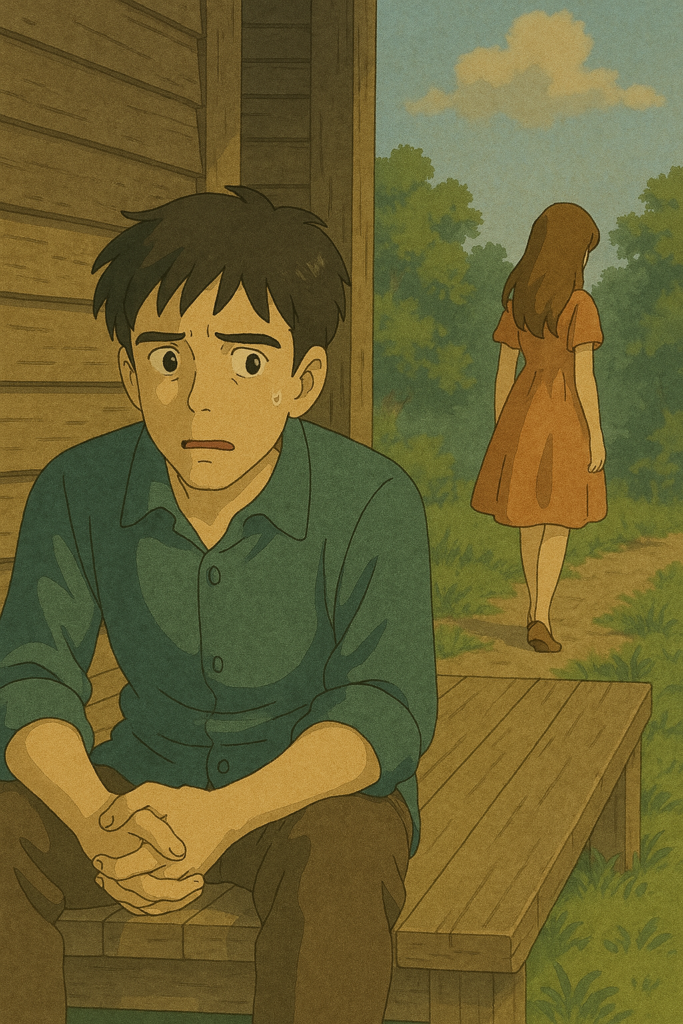Understanding the dynamics of narcissistic relationships can be a perplexing journey. The constant push and pull, the charm, followed by coldness, and the unpredictable moods—it’s not your imagination. Narcissistic individuals are known for their self-centeredness and manipulative tendencies, which can make relationships both thrilling and exhausting.
But what happens when this once seemingly perfect bond takes a dark turn? Specifically, when does a narcissist start to hate their spouse?
In this article, we’ll break down the psychology behind narcissistic behavior in relationships, explore the warning signs that a narcissist may be starting to harbor hatred toward their spouse, and help you understand how this shift in behavior happens. So, let’s dive in!
1. The Narcissist’s Love Bombing Stage: The Calm Before the Storm

At the start of any relationship with a narcissist, it’s easy to feel like you’ve hit the jackpot. They’re charming, attentive, and seemingly deeply in love with you. This is known as the love bombing phase, where they shower you with affection, compliments, and attention. You may feel like you’re the center of their world, and they seem to make all the right moves.
But here’s the catch: Narcissists are experts at playing this role. They thrive on admiration and validation, and they quickly learn how to get what they want. For them, this early phase isn’t about genuine love—it’s about building a sense of control over their partner. They see their spouse as an extension of themselves, a source of supply to boost their fragile ego.
The love bombing doesn’t last forever, and when the narcissist feels they have secured their hold over you, things start to change.
2. The Gradual Shift: Why Narcissists Begin to Dislike Their Spouse

Once a narcissist feels they’ve “won” their spouse and the initial stage of idealization passes, the next phase of the relationship begins. It’s subtle at first, but it grows over time. As the narcissist’s need for validation is constantly fed, their view of their spouse starts to shift. This is where they begin to devalue their partner.
Why does this happen?
A. Loss of Control: Narcissists have an insatiable need for control. If their spouse begins to assert independence or stand up for themselves, it threatens their sense of superiority. Narcissists can’t tolerate anyone who challenges their authority or tries to be their own person.
B. The Illusion of Perfection Fades: The mask starts to slip, and the narcissist’s true nature begins to show. When they no longer perceive their spouse as perfect, they may begin to criticize, belittle, or ignore them. The spouse may feel like they’re walking on eggshells, trying to figure out what went wrong.
C. Narcissistic Supply Depletion: Narcissists require constant admiration and validation from their spouse (and others). When their spouse stops giving them the constant supply of praise they crave, they may begin to feel irritated, frustrated, and even resentful. The narcissist will then search for other sources of validation, which may lead to cheating or other forms of emotional withdrawal.
D. Unmet Expectations: Narcissists often have unrealistic expectations of those around them. If their spouse doesn’t meet these expectations, they may feel betrayed. The narcissist’s inflated sense of self-worth leaves little room for empathy or understanding of their spouse’s needs. This breeds resentment and, eventually, hatred.
3. Signs a Narcissist May Start Hating Their Spouse

Recognizing the signs of when a narcissist’s affection begins to turn into hatred is crucial for anyone in a relationship with a narcissist. Here are a few warning signs to watch out for:
A. Constant Criticism and Belittling: Once the narcissist starts devaluing their spouse, it’s common for them to criticize everything from their appearance to their intelligence, to their career choices. At first, these criticisms may seem like minor comments, but over time, they become more pointed and destructive. The narcissist will belittle their spouse to maintain control and assert their dominance.
B. Emotional Withdrawal: A narcissist may begin to emotionally withdraw from their spouse. They’ll give them the silent treatment, ignore their emotional needs, or become distant when their spouse tries to connect. This withdrawal is often used as a form of punishment or to manipulate the spouse into seeking their approval once again.
C. Gaslighting: Gaslighting is a psychological tactic that narcissists often use to make their spouse question their reality. If a narcissist starts to hate their spouse, they may start to gaslight them—denying their feelings, twisting facts, or making them feel like they’re going crazy. This is done to destabilize their spouse and keep them off balance.
D. Public Humiliation: A narcissist who begins to resent their spouse may humiliate them publicly. Whether it’s making cruel jokes or sharing private details about the relationship, narcissists don’t hesitate to put their spouse down in front of others. This is done to maintain power and demonstrate their superiority.
E. Flirting with Others or Infidelity: If a narcissist feels their spouse is no longer serving as a source of validation, they may seek attention elsewhere. Flirting with others, emotional affairs, or outright infidelity may occur as the narcissist attempts to find someone who can offer the admiration and praise they crave.
F. Sudden Indifference: In the end, a narcissist may simply become indifferent to their spouse. They may stop caring about their feelings or needs and begin to treat them as if they no longer matter. This indifference is often a clear sign that the narcissist no longer values the relationship in the way they once did.
4. The Narcissist’s Fear of Abandonment: The Double-Edged Sword

While narcissists are quick to devalue and even hate their spouses, they also live in constant fear of being abandoned. Their sense of self-worth is fragile, and losing their spouse would feel like a blow to their ego. This is why they often cycle between idealization and devaluation, trying to maintain control while avoiding complete abandonment.
The narcissist may hate their spouse, but they’re also terrified of being alone. This contradiction creates a toxic dynamic where the narcissist swings between emotional neglect and overwhelming possessiveness, making the relationship even more confusing for the spouse.
5. What Should You Do If You’re in a Relationship with a Narcissist?

If you recognize these signs in your relationship, it’s essential to prioritize your well-being. Narcissistic relationships are emotionally draining and can take a severe toll on your mental health. Here are some steps you can take:
A. Set Boundaries: Establish clear boundaries with the narcissist. Don’t allow their behavior to dictate your emotions or sense of self-worth. Narcissists will test boundaries, so it’s crucial to stay firm.
B. Seek Support: Consider talking to a therapist or counselor who specializes in narcissistic abuse. Having someone to talk to can provide clarity and help you process the complexities of the relationship.
C. Consider Ending the Relationship: In some cases, the healthiest option may be to walk away from the relationship entirely. If the narcissist’s behavior is causing emotional harm, it’s essential to recognize that you deserve a healthier, more fulfilling partnership.
Also Read: Do Narcissists Feel Sorry? Here’s What They Really Think
Conclusion
A narcissist’s hate for their spouse isn’t something that happens overnight. It’s a gradual process that starts when the narcissist feels their control is slipping or their needs for validation aren’t being met. Understanding the signs and dynamics at play can help you navigate this challenging situation.
Remember, you are not responsible for a narcissist’s behavior, and their approval does not determine your worth. If you’re dealing with a narcissistic partner, the most important thing is to protect your emotional health and seek support from loved ones or professionals.







